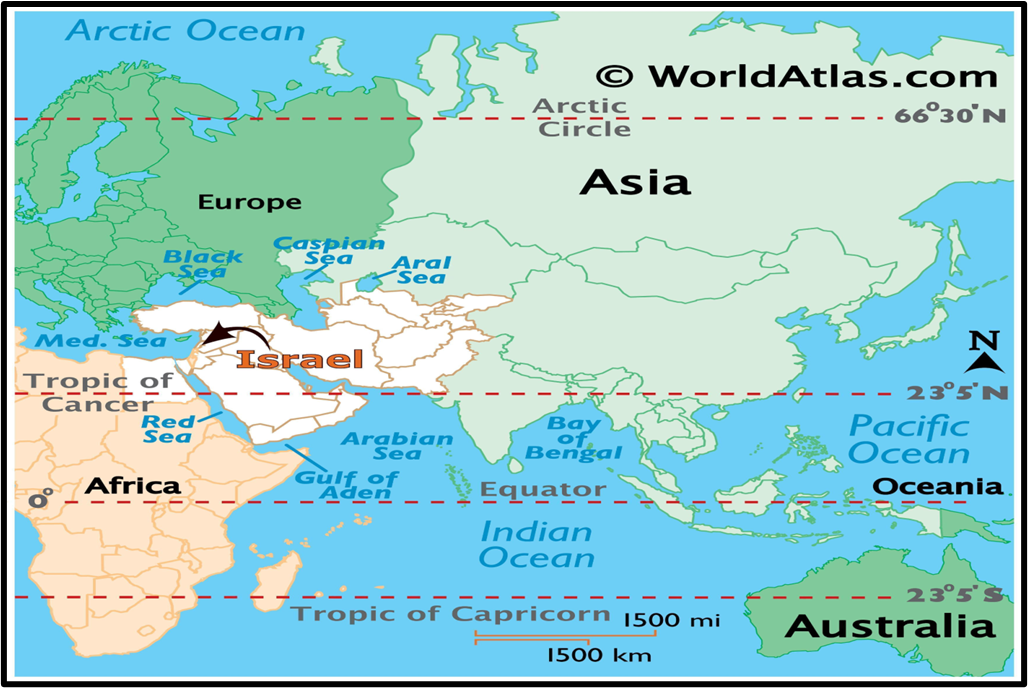US-ISRAEL RELATIONS REMAIN LARGELY UNCHANGED AMID RECENT GEOPOLITICAL DEVELOPMENTS.
Syllabus:
GS-II:
Governance, Constitution, Polity, Social Justice and International Relations
Why in the news?
The enduring relationship between the United States and Israel remains steadfast, despite occasional tensions and perceived shifts in policy.
source:wordpr
About Abraham Accord:
About BARD (U.S.-Israel Binational Agricultural Research And Development Fund):
|
About the Premature Conclusions on US-Israel Relationship:
- UN Security Council Abstention:
- Unusual abstention by the US during a resolution calling for a ceasefire in Gaza.
- Contrast with previous US vetoes and conditions tied to Israeli hostages’ release.
- Israeli Reaction to US Abstention:
- Netanyahu’s criticism of the US retreat from unconditional support.
- Cancellation of Israeli delegation visit to the US in response.
- Perceived Milestones in US-Israel Relationship:
- Interpretation of recent events, including US abstention and internal criticisms, as signs of evolving relations.
- Guardian’s description of US distancing from Israel as a significant development.
- Growing Tensions and Humanitarian Concerns:
- Rising tensions between Israel and the US over humanitarian aid and criticism of IDF actions.
- Death of aid workers in targeted strike intensifies American pressure on Israel.
- Shift in US Support for Israel:
- Speculation about changes in the special relationship between the US and Israel.
- Reports of US pressure leading to Israeli concessions on aid routes to Gaza.
- Political Dynamics in the US:
- Calls within the Democratic party for tying arms sales to Israel with higher standards of accountability.
- Growing unrest and potential loss of support among Arab-American constituencies for the Biden administration.
- Reassessing US Support for Israel:
- Argument against premature conclusions on significant shifts in US-Israel relations.
- Emphasis on longstanding US support for Israel, including financial aid and access to advanced military technologies.
- Synergy Between US and Israel:
- Exploration of the synergy between settler-colonial states like the US and Israel.
- American exceptionalism and Israel’s moral authority rooted in historical narratives.
- Continued Dynamics in US-Israel Relationship:
- Doubts cast on substantive changes in the US-Israel relationship.
- Asserting that historical ties and shared narratives are unlikely to shift significantly.
Understanding U.S.-ISRAEL RELATIONS:
- S. Recognition of Israel:
- First country to recognize Israel in
- Acknowledged Jerusalem as Israel’s capital in
- Strong partnership based on shared values of democracy, economic prosperity, and regional security.
- Promotion of Israeli-Palestinian Peace:
- Prioritises a comprehensive solution to the Israeli-Palestinian conflict.
- Supports increased cooperation and normalisation between Israel and Arab/Muslim-majority states, as demonstrated by the Abraham Accords.
- Security Cooperation:
- S. committed to Israel’s security.
- Signed a $38 billion Memorandum of Understanding (MOU) in 2016 for defence cooperation.
- Provides $3.3 billion annually in Foreign Military Financing and $500 million for missile defence.
- Military and Strategic Collaboration:
- Conducts joint military exercises, research, and weapons development.
- Joint Counterterrorism Group and strategic dialogues address regional threats.
- Bilateral Economic Relations:
- Bilateral trade is valued at close to $50 billion annually.
- 1985 U.S.-Israel Free Trade Agreement (FTA) facilitates economic ties.
- The U.S. is Israel’s largest trading partner; trade has grown significantly since signing the FTA.
- Scientific and Cultural Exchanges:
- Cooperates through organisations like the Binational Science Foundation (BSF) and Binational Agricultural Research and Development Foundation (BARD).
- Annual Joint Economic Development Group discusses economic partnership and initiatives.
- International Organisations:
- Both countries are members of various international organisations.
- Israel is a Partner for Cooperation with the Organization for Security and Cooperation in Europe.
- Bilateral Representation:
- The U.S. Embassy moved to Jerusalem in 2018; maintains a large Embassy Branch Office in Tel Aviv.
- Israel maintains an embassy in Washington DC.
Challenges to Perceived Shift in US-Israel Relationship:
- Arguments against premature conclusions regarding US support for Israel.
- Long-standing US aid and military support to Israel remain unchanged.
- Dominance of pro-Israel interests in American institutions, including universities.
Conclusion:
While recent events have sparked discussions about changes in the US-Israel relationship, it is argued that such conclusions may be premature. The deep-rooted historical ties and shared narratives between the two nations suggest that any significant shifts are unlikely in the near future.
Source: Indian Express
Mains Practice Question:
Discuss the evolving dynamics of the relationship between the United States and Israel in light of recent diplomatic developments and historical ties. Evaluate the factors contributing to the evolving dynamics of the U.S.-Israel relationship and assess the potential consequences for U.S. foreign policy objectives in the region.




